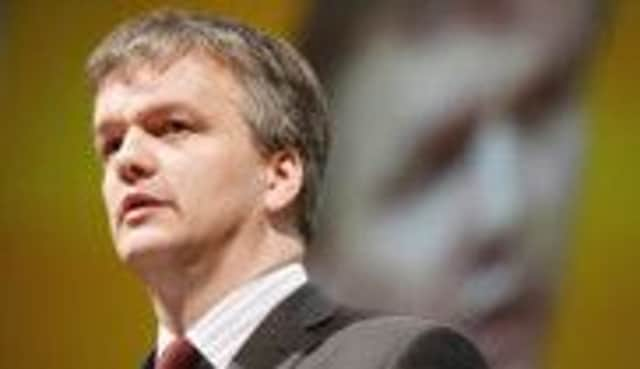Leaders: Debating Devo Plus | Festival turns timid


Considering the extent and significance of the powers still reserved to Westminster, however, there were legitimate technical arguments for retaining the Scottish Secretary as Scotland’s voice in the Cabinet. The independence referendum has lent new relevance and purpose to the Scottish Secretary’s job, as demonstrated by its present incumbent Michael Moore, with whom we carry an interview today.
This newspaper has long advocated an extension of devolved powers to Scotland, while being wary of full independence – a position now described as “Devo Plus”. The precise nature and extent of the increased powers remain negotiable; but they should be substantial and more ambitious than those offered in the impending Scotland Act. As a Liberal Democrat, belonging to the UK’s only federalist party, Michael Moore has an instinctive affinity with this concept. In the current referendum campaign it is tempting to see him as part of a Unionist double act with Alistair Darling, of the Better Together campaign – “nice cop, nasty cop” – in which it is Darling’s role to say “No” and Moore’s to say “Yes, but…” Often the SNP has been reduced to decrying the “negativity” of the Unionist campaign and accusing it of “talking Scotland down” That is disingenuous: exposing weaknesses in the independence case is talking down the SNP’s more unfounded assertions, in Scotland’s interests.
Advertisement
Hide AdAdvertisement
Hide AdAs we approach the final year of the referendum battle, the Scottish Secretary could play an important role in injecting a more positive, creative tone into the No campaign. The polls show a retreat by voters from independence since the start of the campaign, as its many pitfalls and uncertainties have been exposed and the SNP failing, so far, to provide detailed answers to questions on sovereignty. As a member of a party that is the junior partner in a coalition Moore cannot offer guarantees; but he and his colleagues could enlarge the horizons of the debate by encouraging creative thinking around the concept of Devo Plus. Full fiscal autonomy is already an established proposal (though there are recognised problems in respect of devolving social security), but Devo Plus should amount to more than a fiscal programme.
The largest constitutional adjustment since 1999 would offer scope for many reforms as well as an opportunity to iron out problems identified since devolution. For example, should the Scottish parliament’s composition be revisited? Since accountability is the essence of devolution, is there a case for abolishing the List system and bringing all MSPs into direct interface with voters? Since Devo Plus would bring massive new financial powers, might it be desirable to create a second, revising chamber at Holyrood to oversee their stewardship? And so on. These are not prescriptions but suggestions of themes for debate. The relentless pounding of the Yes/No war risks alienating voters. A creative, imaginative presentation of the far-ranging possibilities afforded by Devo Plus could raise the whole intellectual and philosophical tenor of the debate, while simultaneously being grounded in political reality.
Festival turns timid
Here is a turn-up for the book: a major institution in the arts world is becoming mired in controversy – for not being controversial. The Edinburgh International Festival in 2014, commencing as the independence referendum campaign approaches its climax, will exclude productions on that theme, to maintain political neutrality, as decided by director Sir Jonathan Mills. The I-topic will be on the Fringe.
There are arguments in favour of Sir Jonathan’s stance. The most obvious is the danger that, a year from now, Festival-goers seeking to escape politics may have referendum fatigue. A consideration, too, is the extent to which the Festival depends on Scottish Government funding: a major production promoting independence would leave Sir Jonathan open to the charge of being bought and sold for Alex’s gold, with discrediting consequences. Nor is the fate of the National Theatre of Scotland’s heavily panned drama Caledonia, backed by £200,000 of government cash, an encouraging precedent.”
That said, it is surely perverse for Scotland’s greatest arts event to run from the most important constitutional debate since 1707. Sir Jonathan’s claim that, as a British and Australian citizen, he is unqualified to commission work on independence is unpersuasive, considering the cosmopolitan character of the Festival he commands. Surely there are respected Scottish artists able to make a significant contribution to the debate. This decision looks less like prudence than downright timidity.